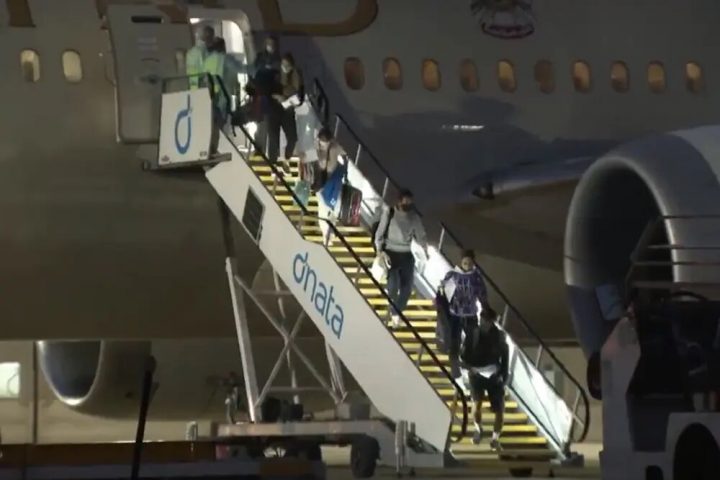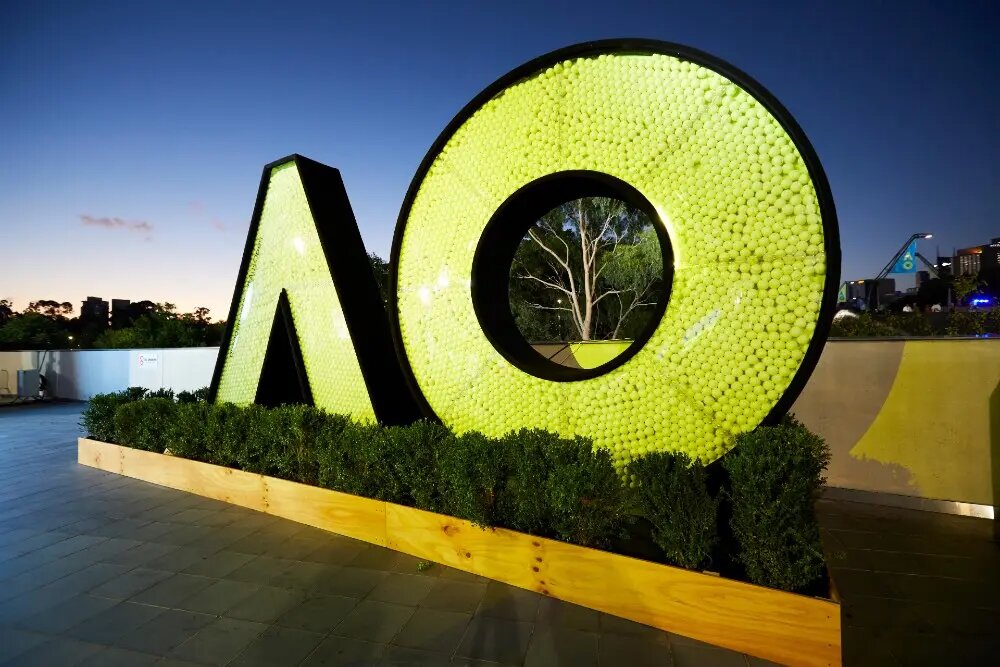Less than a week into the mandatory 14-day quarantine process for players in Australia and there has already been plenty of drama.
Approximately 1200 players and their teams have travelled to Melbourne ahead of the Australian Open. Under government rules they are required to stay in their hotel rooms but are allowed to train up to five hours each day unless they have been in close contact with somebody who has tested Positive for COVID-19. Although things haven’t entirely gone to plan. There has been social media complaints about the food, insects in rooms and issues with practice sessions. Roberto Bautista Agut even went as far as describing the situation as a ‘prison’ in a personal video call that was published by an Israeli website without his permission.
The amount of negativity surrounding quarantine is substantial but is it really as bad as what it sounds?
Spanish coach Carlos Martinez is currently one of those living inside the bubble. With a wealth of experience in working with WTA players under his belt, he is currently mentoring former top 10 star Daria Kasatkina. Martinez has clarified some of the controversies surrounding the quarantine, including comments from players that they were misled about the rules upon arrival.
“They (Tennis Australia) made like, I don’t know how many, but hundreds of zoom’s (video conferences). They would inform us about everything, how it is going to be and the quarantine. We were getting messages and emails every single week,” Martinez told Ubitennis.net.
“Tennis Australia was doing a great job in my opinion. The only thing that was a bit unclear was about the quarantine when somebody gets infected on the plane. They were talking like they were going to make sections inside the plane so if they found somebody in a section (who tests positive) they would isolate those people,’
“But in the end the government didn’t want to do this and they preferred to isolate all on the plane because it was safer for everyone.”
So far Martinez has been fortunate not to have gone into strict isolation which at least 72 players have entered. Due to a series of flights having a passenger test positive for the virus, those on board must stay in their room throughout their quarantine. Those affected have been provided with exercise equipment of some sort.
“We know what we came for and how it is going to be. Of course, where you arrive everything seems more difficult than it is. But in my opinion they made a big effort and a super job to make the event. We can’t complain much.”
A frosty atmosphere with teething problems

Martinez has a lot of admiration for Tennis Australia’s management in order to enable the first Grand Slam of the season to go ahead but he himself has also experienced some minor setbacks in the bubble. Undergoing daily testing, the Spaniard said he was kept inside his room for three and a half days without proper clarity about what was happening. Eventually he was informed that an issue with the practice schedule resulted in his first session with Kasatkina being cancelled. Fortunately, those issues have been resolved and they have now resumed practice.
“We are keeping to our plan. We are four days in and it is nothing compared to the others in the hotel,” Martinez said of Kasatkina’s preparation.
“She’s feeling good, she’s feeling happy and I’m not feeling anything strange.’
“Daria hasn’t lost any shape. We are coming from Abu Dhabi in what was a good week for us. She lost in the third round but was playing quite well in my opinion.”
While the problems are starting to be resolved Martinez admits that there remains what he describes as a ‘strange and complicated’ atmosphere within the bubble. Frustration, anger and criticism from the public is a bit of a nightmare scenario for anybody preparing for a Grand Slam. On top of that, the two types of quarantine occurring is leading to concerns of an uneven playing ground.
“It is a strange atmosphere because there are 72 players in (stricter) quarantine. We can say that maybe it’s unfair because it’s true that we will not have the same opportunity. For example, we are practising for two hours a day plus fitness. They are in their rooms and can’t move. Of course it is not the same,” he commented.
“It is a bit complicated because I have found many people complaining and some of them talk about some things which are not right. That’s not nice at the moment.”
Amid the tension, the real question is how much of a disparity will there be between the players who are able to train on court during these two weeks and those who can’t? Some have called for the Australian Open to be delayed and for the men’s matches to be reduced from best-of-five to best-of-three sets. Two things which are unlikely to happen at present unless there is a mass rebellion.
Perhaps the media and players are reading too much into it? Martinez believes the impact will not be as significant as some are suggesting. Although he admits those 72 players are unlikely to be ready to play their tournament leading up to the Melbourne major.
“In my opinion, it’s not like they are going to lose all of their shape because most of them have equipment in their room and can make something. Of course it is not the same but I think in one week they can practice a lot and recover their shape,” he said.
“In the end, I think it will not be that bad. Of course it is not the same because they cannot compete in the first tournament and it is important to go into a grand slam with a few matches. But in the end it is going to be better than they think.”
The public is right to be unhappy

The series of player comments about their conditions in quarantine has prompted some backlash from the Australian public, highlighted best by The Sydney Morning Herald who published a series of letters criticising them. Meanwhile Novak Djokovic’s attempt at changing the quarantine rules by submitting his own letter outlining a series of suggestions were greeted with a flat out ‘No’ from the government. Australian Prime Minister Scott Morrison told reporters earlier this week ‘I think it’s just time people followed the rules, do their quarantine, play Tennis.’
As the public gets bemused by the situation, some are wondering how players will be received by fans during their tournaments in Melbourne Park?
“There are people living out of Australia who cannot come back and that’s why they (the public) can be a little bit unhappy with us,” said Martinez.
“I don’t think they will react badly because the public will be very happy to go to Melbourne Park to watch matches and see the top players in the world doing their job. There will not be any inconvenience for anyone.”
Like others within the tennis community, such as Victoria Azarenka, the Spaniard said it is vital that everyone look at the wider picture concerning the pandemic. On January 16th the worldwide death toll for COVID-19 surpassed 2 million people.
“In the end, we have to understand why players can not act like spoiled people. Complaining about the hotel, room and that when there are other people worse off in really tough moments. Many people are losing their jobs and in the end for us we can be very proud with what Tennis Australia is doing. Otherwise, we are home crying that we cannot play tennis.” He concluded.
The Australian Open is set to start on February 8th.






